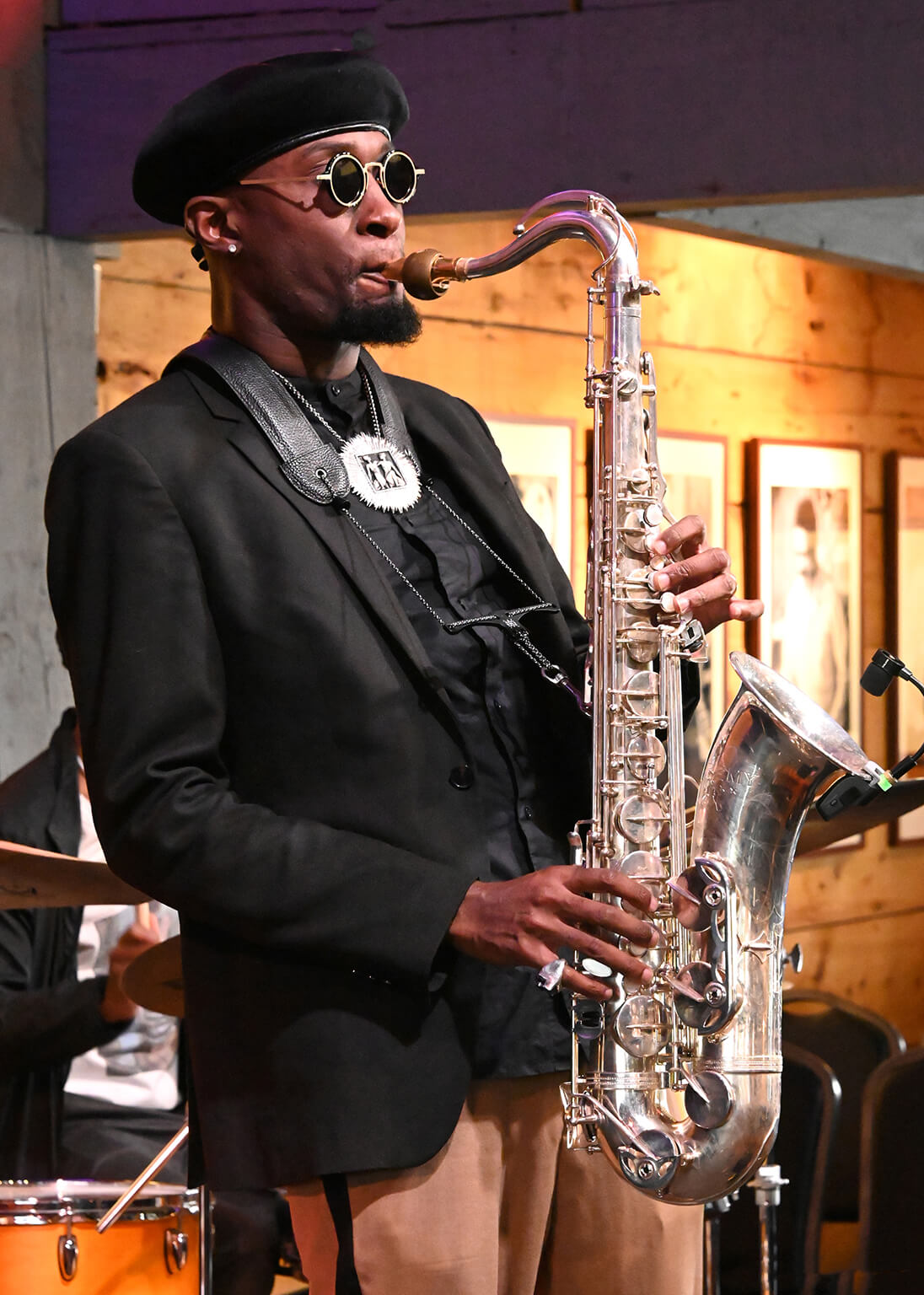Words by Johanna Harlow
At a beachside venue in Half Moon Bay, a jazz quartet is getting into the groove. The bandleader, a vibraphonist named Jalen Baker, wields his mallets in ways that require quite a lot of core strength. The bassist bobs and bends, the pianist plunges into a rousing riff and the drummer builds into cymbal-crashing crescendos. It’s a good day to be at the Bach Dancing & Dynamite Society.
“I love places like SF Jazz … I give them a lot of credit, but it’s not my favorite place to go hear jazz. I’d rather be here,” says Barbara Douglas Riching. In addition to her role as artistic director and president, she’s also the daughter of the Bach’s fiery and free-spirited founder, Prentice “Pete” Douglas.
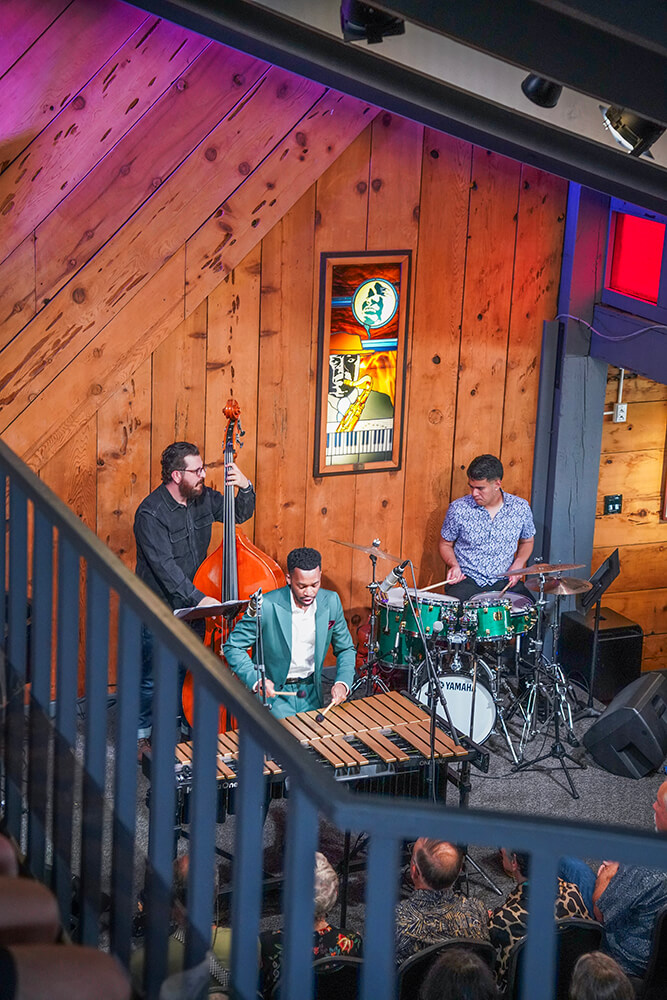
Cover Photo: Courtesy of Brian McMillen / Balcony Photo: Johanna Harlow
You need only attend a show at this 200-seat venue to sense the palpable intimacy and authenticity of this place. “My dad felt very strongly that jazz was like chamber music—and it should be presented that way, in a very intimate situation. I totally agree,” says Barbara. “People feel like they’re a part of one organism in this room. It feels like we’re all really connected.” The greats have flocked here since its opening in 1964, with Etta James, Bobby Hutcherson, Bill Evans, Duke Ellington and Dizzy Gillespie taking the stage.
Beginning with a Bang
At 17, Pete snuck into his first bar and encountered Southern California’s spirited jazz scene. The contagious music of swing, bebop and West Coast jazz caught hold of his soul and never let go.
Later in life, Pete took a gig as a San Mateo County probation officer. “More beatnik than beat cop, Pete didn’t conform with correctional life,” reports The Mercury News on Pete’s life. “He wrecked his county-issued Chevrolet—and cracked gum in court. He was most comfortable wearing a Mediterranean fisherman’s cap and smoking a pipe.” The siren song of the sea drew Pete to Half Moon Bay, where he bought a ramshackle beer joint and transformed it into a beach house—a lively one where he regularly hosted parties and jam sessions.
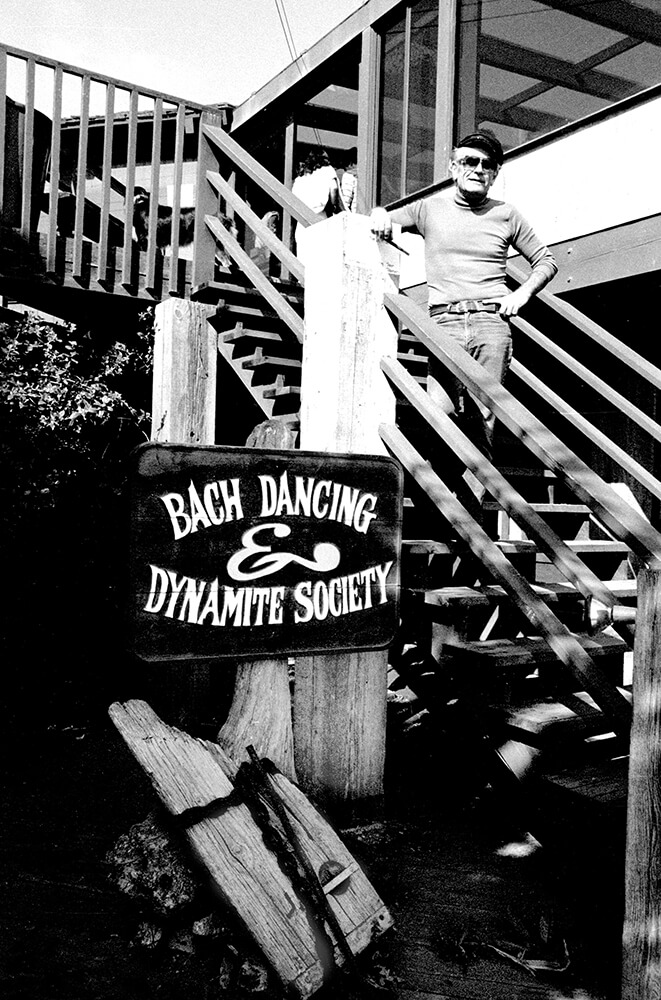
Photo: Courtesy of Brian McMillen
On one memorable day, Pete and a few friends were hanging out when visitors popped in to show off some newly acquired dynamite, suggesting they blow it up on the beach. Pete and his pals opted to swing dance to Bach’s Brandenburg Concertos instead, the drama of the music heightened by the subsequent thundering BOOM outside. When Pete opened an official music venue in his home the following year, he had its name all ready to go.
For Pete’s Sake
Having the Bach’s early concerts (along with wedding venue rentals) take over your living room was less whimsical than you might think. “In the ‘60s, when people had weddings, it was a big rock band and people slopping red wine all over the place,” Barbara says. She and her sisters would sneak upstairs to swipe food—and sometimes a little booze as they grew older. “But yeah, we hated it.”
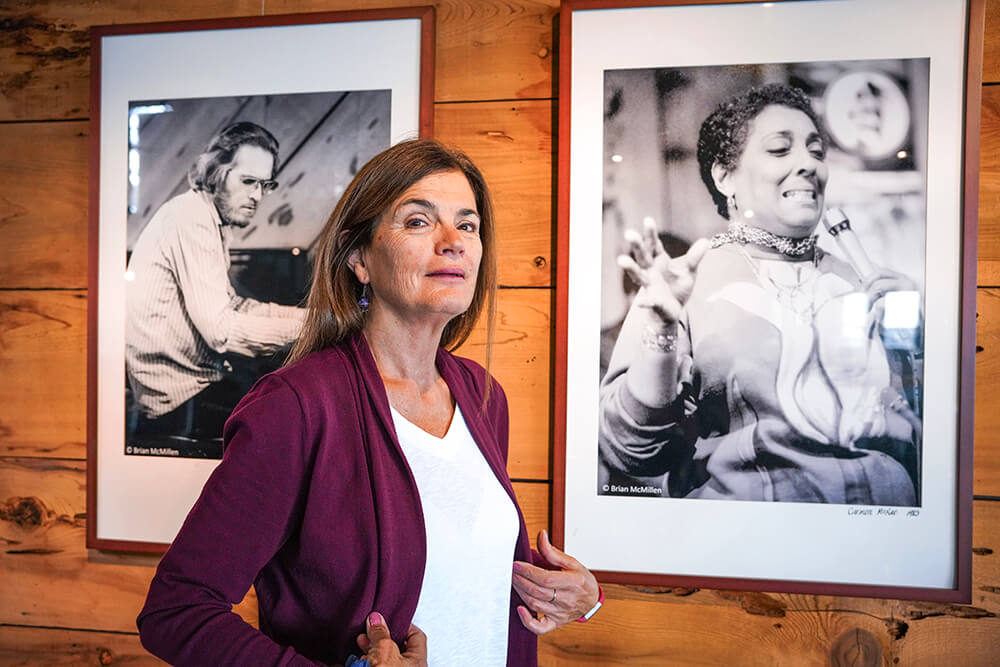
Photo: Johanna Harlow
As word spread, Pete expanded to keep up with the growing demand, adding a dedicated performance space and oceanside deck. But that didn’t change his open-door policy. Pete had a tendency to bring home stragglers of all stripes, at all hours. Breakfast in the Douglas household often meant a hitchhiker, starving artist or wayward teen would wander in mid-meal.
One of those angsty adolescents, Pat Britt, had Pete as his probation officer. Upon seeing the kid’s saxophone, Pete invited him back to the house to play. Music would become a lifelong career for Pat. It wasn’t the only time Pete left a lasting impression. He permitted Tim Jackson, a flute-playing surfer and Volkswagen vagabond, to sleep in the concert hall while working as a janitor and ticket-taker. Tim became Monterey Jazz Festival’s artistic director and founder of the beloved Kuumbwa Jazz Center in Santa Cruz.
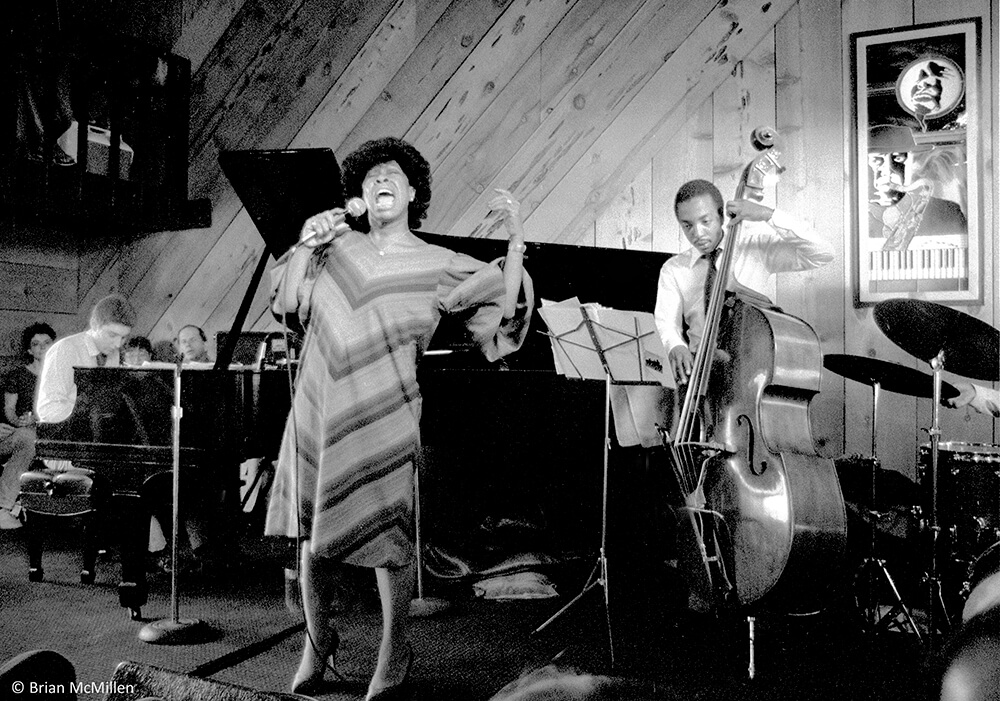
Photo: Courtesy of Brian McMillen
Tuneful Tales
Barbara’s gaze grows distant as she journeys down musical memory lane. She resurfaces to recount tales from her time collecting tickets as a teen. “It would get so crowded that the door couldn’t open anymore,” she reminisces. “I would stand on my stool back there and watch the music.”
One favorite performance from this time was with Michel Petrucciani, a pianist who suffered from brittle bone disease. “They literally carried him onto the stage,” Barbara recalls. But there was nothing stunted about the nimble way that man tickled the ivories. “He just blew me away … After a couple songs, I ran downstairs and got my boyfriend. I’m like, ‘You’ve got to get up here!’”
At 85, Pete took his final bow. “For some weird reason, we thought my dad would live forever,” Barbara reflects. Taking up that mantle was no easy feat. “It’s not like my dad ever taught us anything about the business,” notes the director. That said, she was up for the challenge. “The booking came naturally to me,” she shares. “I was exposed to it my whole life. I know all the local jazz musicians.” Thanks to her background as a CFO, business-savvy Barbara also gave the Bach much-needed structure, a ticketing system and a membership program. “My dad … that was not his thing,” she chuckles.
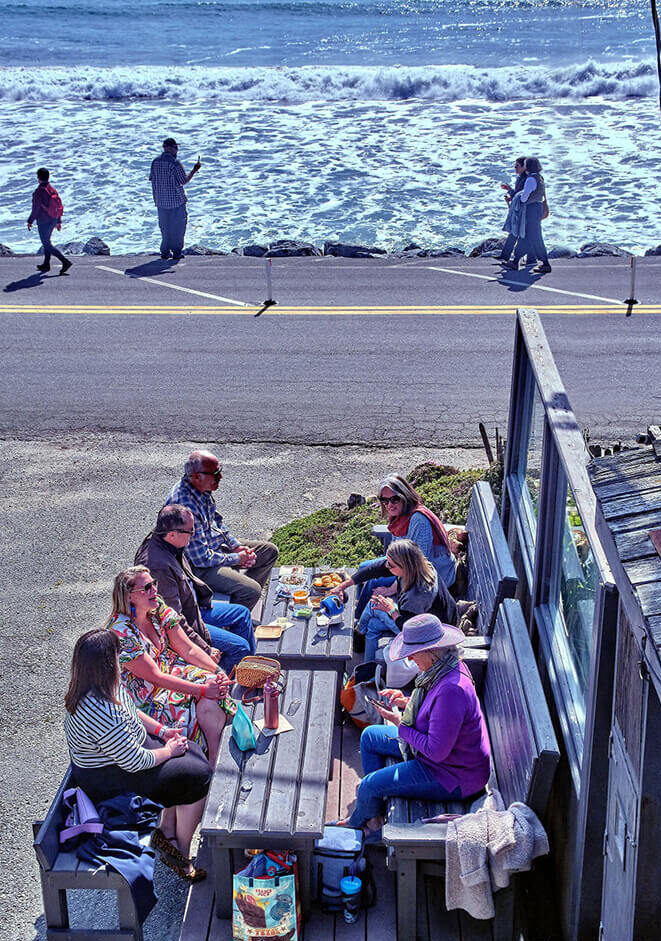
Photo: Courtesy of Jim Bourne
For a Song
What is it about jazz that wins us over? For Barbara, a big part of it is the improvisation. “You really never know what’s gonna happen … It just moves me.” There’s also a riveting dialogue that happens between the instruments. “The musicians work together,” Barbara describes. “You kind of learn how they all trade off.”
Of all the subgenres, her soft spot is “post-bop and instrumental jazz such as John Coltrane.” Wryly, Barbara notes, “A lot of people might call it headache jazz. I love it when you’ve got a sax player and they just solo for five minutes. It’s heaven to me.”
The show has ended. The musicians and audience have gone. And only the director remains. A hush has fallen over the auditorium. But the Bach is just catching its breath—biding its time before again raising its voice in another joyful performance. “One of the greatest things my dad gave me is the exposure to different people and musicians and all the patrons who came here,” Barbara reflects in this quiet moment. “My dad taught us how to listen to the music.”


